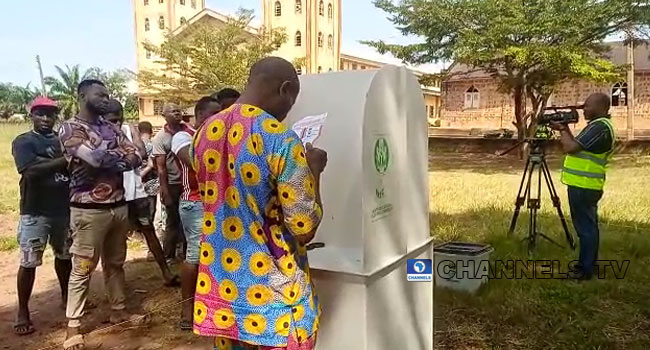In a recent legal development, the Court of Appeal, Lagos division, has overturned a decision made by the Federal High Court that compelled the Independent National Electoral Commission (INEC) to electronically upload election results, particularly for governorship and state assembly elections, directly to the Results Viewing Portal (IReV). The decision, which was rendered by a three-judge panel consisting of Justice Abubakar Umar, Justice Olukayode Bada, and Justice Onyekachi Otisi, emphasized that INEC holds broad discretionary powers to determine the mode of transmitting election results.
The judgment, delivered on July 19 and accessed by The Guardian, pertained to a suit initially filed by the Labour Party (LP) at the lower court. The suit argued for the enforcement of Clauses 37 and 38 of the Regulations and Guidelines for the Conduct of Governorship and State Houses of Assembly Elections in Lagos State, which stipulated that presiding officers should electronically transmit and transfer polling unit results to the collation center and INEC’s IReV.
However, the Court of Appeal deemed the suit an abuse of the court process, echoing the argument that INEC’s authority grants it the discretion to determine the method of result transmission. The court emphasized that the Electoral Act provides INEC with extensive latitude to choose the transmission mode, including options for manual or physical transfer of results.
Justice Peter Lifu of the Federal High Court, Lagos, had previously issued an order of mandamus on March 8, 2023, directing INEC to abide by the provisions of the Electoral Act and its guidelines for the conduct of elections. This order was based on Clauses 37 and 38 of the Regulations and Guidelines for the Conduct of Elections 2022, which demanded electronic transmission of results and prompt dissemination of result posters.
The All Progressives Congress (APC) and Social Democratic Party (SDP) expressed their dissatisfaction with the judgment and sought leave to appeal. The APC, though not initially part of the suit, argued that the decision would affect its interests as a sponsor in the same elections as the SDP.
The Court of Appeal concurred with the APC’s argument, affirming that INEC holds the authority to determine the method of result transmission and is not bound by an order of court. The court also highlighted that INEC’s regulations are subject to amendment and variation, as necessary, based on the exigencies of the electoral process. Furthermore, the court emphasized that allegations of INEC’s regulatory breaches during the presidential poll should be addressed by the election tribunal rather than through a mandamus order.
The Court of Appeal ultimately found merit in the APC’s appeal and ruled in favor of the party, nullifying the Federal High Court’s ruling on the electronic transmission of election results.










